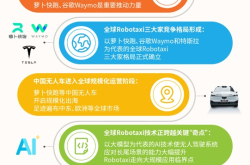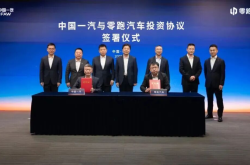Lifting a Stone Only to Drop It on One's Own Feet? The EU's Tax Increase on Chinese Electric Vehicles May Backfire
![]() 06/14 2024
06/14 2024
![]() 599
599
The EU has officially taken action against Chinese electric vehicles! The European Commission issued a statement on June 12th proposing to impose a temporary countervailing duty on electric vehicles imported from China starting from July 4th, with an additional tariff of up to 38.1%. Within four months after the temporary tariff takes effect, the EU will decide whether to impose a permanent tariff on Chinese electric vehicles.
It is reported that the EU's tariff increase on Chinese-made electric vehicles is divided into five levels: SAIC Motor, Geely, and BYD are subject to tariffs of 38.1%, 20%, and 17.4% respectively, while other "companies cooperating with the investigation" face a 21% tariff, and "companies not cooperating with the investigation" face the same 38.1% tariff as SAIC Motor. Tesla imported from China may be subject to a separate tax rate. Prior to this, the EU imposed a 10% tariff on all Chinese electric vehicles.
Interestingly, the day after the EU increased the tax, on June 13th, Hong Kong automotive stocks did not fall but rose instead. Among them, BYD shares led the auto sector with a gain of over 8%, while Geely and Leapmotor saw gains of over 4%, with Li Auto and NIO following suit. Has the EU's tariff increase on Chinese electric vehicles lifted a stone only to drop it on its own feet, backfiring?
01 Unable to compete with Chinese electric vehicles, relying on policy protection?
Why did the EU impose tariffs on electric vehicles imported from China? The main reason is that Chinese electric vehicles have more competitive advantages in terms of both performance and price, and their market share in the European local market has risen rapidly in recent years. To protect European local industries, the EU intends to follow the example of the United States and impose additional tariffs on electric vehicles produced in China.
In the past decade, China's electric vehicle industry has achieved leapfrog development from quantitative change to qualitative change, with advantages in low cost, large scale, and good quality. Coupled with continuous technological innovations in the fields of intelligence and digitization, it has unparalleled appeal in the global market.
With these competitive advantages, Chinese electric vehicles are accelerating the erosion of market share in multiple regional electric vehicle markets in Europe, the Americas, Asia, and other regions. This also means that European local automakers are facing challenges from a large number of cost-effective electric vehicles from China.
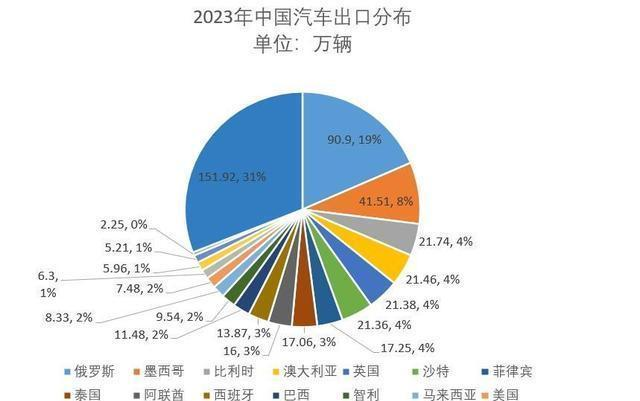
The European Commission stated that in 2019, Chinese brand electric vehicles only accounted for 1% of the EU market share, which has now risen to 8% and may reach 15% by 2025. All this is because Chinese electric vehicles are typically 20% cheaper than models made locally in Europe.
How attractive Chinese electric vehicles are to the European people can be seen from the 2023 Munich Auto Show in Germany. At this top European automotive event, the latest products showcased by Chinese new energy brands such as BYD, AVATR, and Xpeng impressed Germany and the entire Europe, and received high praise from European media and automakers. France's Le Monde published an article stating, "It will only take a few years for BYD to become a global leader in the automotive industry."
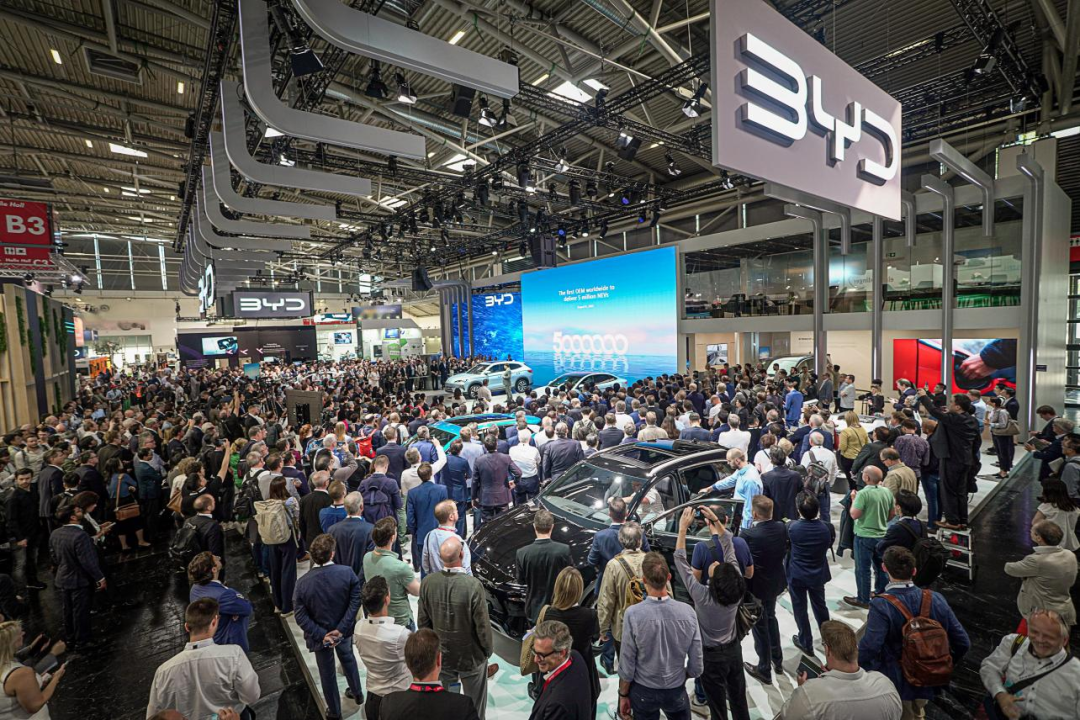
Currently, the EU's trade deficit with China is decreasing year by year, standing at 291 billion euros in 2023, a decrease of 27% (106 billion euros) compared to 2022. Although automobiles are not among the top three products imported by the EU from China (the top three are telecommunications equipment, electrical machinery and instruments, and automatic data processing equipment), they are the product with the largest import growth, with an import value of 3.5 billion euros in 2023, an increase of 36.7% compared to 2022.
As the "China auto threat theory" intensifies, the EU is getting nervous. Recently, there have been sudden political changes in Europe, with far-right political parties in countries such as Germany, France, and Italy winning consecutive victories in European Parliament elections. After seeing the Biden administration in the United States increase tariffs on Chinese electric vehicles to 100%, trade protectionist right-wing ruling parties in multiple European countries decided to follow suit, imposing additional tariffs of up to 38.1% on electric vehicles imported from China.
In addition, the EU's move also has the implication of forcing Chinese new energy vehicle companies to set up factories in EU countries. Compared to China, the EU's electric vehicle industry is currently incomplete, with backward infrastructure and higher production costs, which is one of the reasons why electric vehicles exported from China to the EU are more competitive. Attracting Chinese automakers to set up factories in the EU will undoubtedly promote the development of the local new energy vehicle industry and thereby enhance the competitiveness of EU electric vehicles.
02 Why are SAIC, Geely, and BYD treated "specially"?
It is worth noting that the EU has not treated all electric vehicles imported from China equally, but has adopted different tax rates for different manufacturers. Among them, SAIC Motor is "fortunate" to be subject to the full 38.1% tax rate, while other "companies cooperating with the investigation" face a 21% tax rate. BYD and Geely, on the other hand, "enjoy" lower tax rates of 17.4% and 20% respectively. Why is the EU treating them differently?
This time, the EU imposed tariffs on electric vehicles imported from China under the guise of "countervailing duties," a name that has caused significant controversy. The reason why Chinese electric vehicles have been able to gain a foothold and sell well in multiple global markets, including Europe, in recent years is not due to so-called "government subsidies," but rather due to the complete industrial chain advantage.
Zou Ji, CEO and President of China for Energy China, said in a media interview that China's "new three industries" represented by electric passenger cars, solar cells, and lithium batteries have significant advantages in complete industrial chains, guaranteed supply, and cost-effective products. The deeper-level advantages lie in a large number of talents, complete infrastructure, a complete range of manufacturing industries, and a huge market size. These advantages are currently entering a "blowout period." Because of this, in the terminal consumer market, electric vehicles produced in China have a series of advantages in terms of low cost, large scale, and good quality. Coupled with a complete range of models and a wide selection of vehicles, they have attracted more and more European consumers.
However, in order to provide a protective umbrella for local companies, the EU, disregarding opposition from European automakers including BMW, Volkswagen, and Mercedes-Benz, as well as Robert Habeck, Germany's Deputy Prime Minister and Minister of Economics, insisted on imposing tariffs on electric vehicles imported from China under the guise of "countervailing duties." SAIC Motor was given the highest tax rate due to its status as a state-owned enterprise and the high sales of its electric vehicles in the European market.
In the European 15-country pure electric vehicle brand sales rankings for January to April this year, a total of three Chinese brands or brands belonging to Chinese manufacturers entered the TOP 20, namely Volvo, MG, and BYD. Although Volvo is a European local brand, it has been fully controlled by Geely after its acquisition by Geely, thus being labeled as "Chinese."
From January to April this year, Volvo sold 34,000 pure electric vehicles in the European 15 countries, ranking fourth after Tesla, BMW, and Volkswagen. MG, with its "European bloodline," has been acquired by SAIC Motor for over a decade and has long become a bona fide Chinese brand. It sold 17,785 pure electric vehicles in the first four months, ranking ninth. BYD, on the other hand, ranked 16th with sales of 7,890 vehicles. Among the three brands mentioned above, only MG has a "national" background, while Volvo's Geely and BYD are private enterprises. This may be the reason why the EU is least favorable towards SAIC.
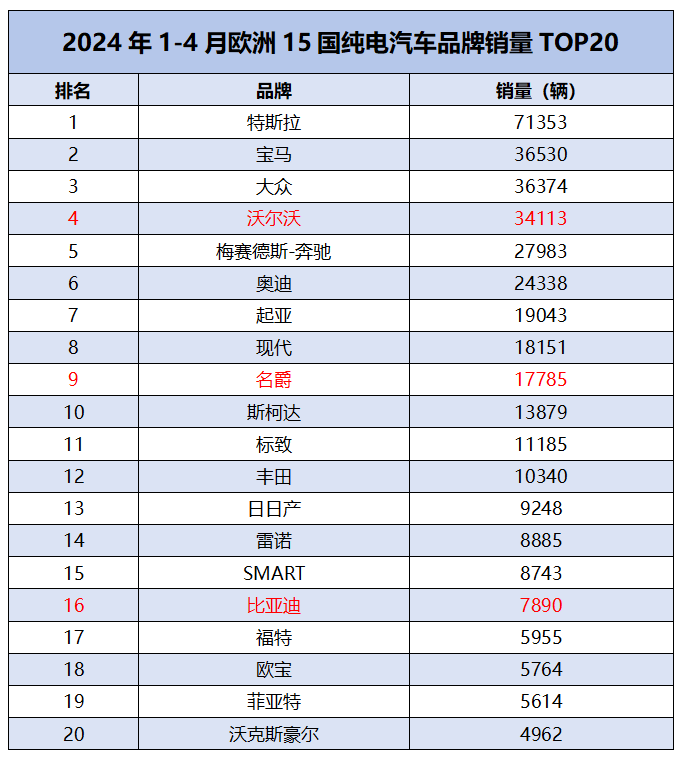
In addition, the EU imposed a separate 38.1% tariff on SAIC and indicated that it would also impose a 38.1% tariff on other "companies not cooperating with the investigation," seemingly implying that SAIC was not cooperating with the EU's countervailing investigation.
The EU's "leniency" towards BYD and Geely, with lower tariffs imposed than other manufacturers, may be because it hopes that BYD, as a giant in battery production, can strengthen its European layout, thereby driving the development of European local companies. Geely, through its holding of Volvo and stake in Daimler, has more connections and interactions with the European automotive market.
As for the other Chinese-made electric vehicles besides these three manufacturers and Tesla, they are treated equally (provided they "cooperate with the investigation"), with a 21% tariff imposed. The reason for 21% is that the prices of Chinese electric vehicles are typically 20% lower than local European models.
03 Will the landing of Chinese electric vehicles in Europe be stalled?
Although the EU's tariff increase on Chinese electric vehicles ranges from 17.4% to 38.1%, which is far lower than the 100% imposed by the Biden administration in the United States, it basically offsets the price advantage of Chinese electric vehicles compared to European products. What impact will this have on China's auto exports? Will the landing of Chinese electric vehicles in Europe be stalled as a result?
Currently, Chinese electric vehicles exported to Europe include brands such as Volvo, MG, BYD, Xpeng, ZEEKR, Polestar, Ora, NIO, Hongqi, JAC, Aichi, and Landwind. Wenjie and Landwind are also on their way to entering the European market. After the EU imposes tariffs, the price advantage of Chinese electric vehicles in the European market is no longer obvious, and manufacturers' export business will be under pressure. Their layout in the European market may be affected to some extent, and the speed of Chinese electric vehicles landing in Europe in the short term will also be affected.
It is worth mentioning that the average countervailing duty imposed by the EU in history is 19%. Previously, analysts predicted that the tariff increase on Chinese electric vehicles would range from 10% to 25%, but the figure announced by the EU this time exceeded expectations, posing greater risks and challenges to Chinese automakers' overseas development.
However, in the long run, even if this temporary trade protection umbrella persists, it cannot keep European manufacturers in a comfort zone for a long time. This is because the competitive advantages of Chinese electric vehicles lie not only in manufacturing costs but also in guaranteed industrial chain supply, a large market size, rapid technological innovation in intelligence and digitization, and excellent quality. Multiple performance aspects of electric vehicles, including range, charging efficiency, and power, are also superior to local European products. With these advantages, it is only a matter of time before Chinese electric vehicles conquer Europe, and tax increases cannot change this development trend.
Patrick Hummel, Head of European Automotive Industry Research at UBS, speculates that the tariff increase is expected to make the group of Chinese OEMs entering the EU more concentrated, meaning that the expansion plans of smaller companies may be frustrated, but it will not affect the plans of Chinese industry leaders to land in Europe. At the same time, these Chinese industry leaders may accelerate localized assembly in the EU, which is even welcomed by EU member states such as Hungary, Italy, and Spain.
In contrast, European local manufacturers are more likely to lose development momentum and market competitiveness under policy protection, and their gap with Chinese electric vehicles may become more apparent over time. This is not good for the development of the European local new energy vehicle industry, which is also the main reason why BMW, Mercedes-Benz, and Volkswagen strongly oppose the EU's tariff increase on electric vehicles imported from China (another important reason is that BMW, Volkswagen, and Mercedes-Benz all have factories in China, and electric vehicles produced in these Chinese factories will also be affected by tariffs when they flow back to Europe).
However, BYD may benefit from the EU's "leniency." Since BYD's tariff increase is lower than other Chinese manufacturers, Citibank believes that this will help BYD achieve share growth in the EU, and it is expected that BYD's exports to the EU will account for one-quarter to one-third of its fiscal 2024 target.
It is currently uncertain whether China will take countermeasures against the EU's tariff increase, but previous industry speculation suggests that China may consider increasing temporary tariffs on large-displacement imported cars, not limited to the automotive sector.

